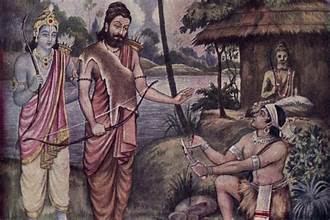Dronacharya : In the epic Mahabharata, the character of Dronacharya, the revered guru of the Pandavas and Kauravas, is often portrayed as a symbol of righteousness and wisdom. However, recent interpretations and discussions have raised questions about whether Dronacharya truly upheld the principles of dharma or if he succumbed to biases and discrimination. Let’s delve into this intriguing topic and uncover the hidden truths behind Dronacharya’s actions.
Unraveling Dronacharya’s Legacy: A Critical Analysis
Dronacharya’s role as a mentor and teacher holds significant prominence in the Mahabharata narrative. He was entrusted with the responsibility of training the princes of Hastinapur in the art of warfare, shaping them into skilled warriors. However, certain incidents depicted in the epic suggest potential instances of favoritism and discrimination on Dronacharya’s part.
Dronacharya’s Treatment of Ekalavya: A Tale of Injustice?
One of the most contentious episodes involving Dronacharya revolves around his interaction with Ekalavya, a talented tribal archer. Despite Ekalavya’s unwavering dedication and exceptional prowess in archery, Dronacharya refused to accept him as his disciple due to his humble background. This refusal, coupled with Dronacharya’s demand for Ekalavya’s thumb as guru dakshina (teacher’s fee), raises pertinent questions about fairness and equality in Dronacharya’s actions.
Examining Dronacharya’s Role in Karna’s Training
Another aspect that invites scrutiny is Dronacharya’s treatment of Karna, the son of a charioteer, who sought to learn the art of archery from him. Despite Karna’s earnest desire to acquire knowledge, Dronacharya rejected him on account of his low social status. This rejection highlights the prevalence of caste-based discrimination even within the revered institution of gurukul, where merit should ideally supersede societal hierarchies.
The Complexity of Dronacharya’s Character: Beyond Black and White
While these instances cast a shadow of doubt on Dronacharya’s adherence to dharma, it’s essential to acknowledge the complexities inherent in his character. Dronacharya’s actions may have been influenced by societal norms and pressures prevalent during that era, where caste distinctions held significant sway. Additionally, his loyalty to Hastinapur and the Kuru dynasty might have compelled him to prioritize the interests of certain individuals over others.
Disclaimer : इस न्यूज़ पोर्टल को बेहतर बनाने में सहायता करें और किसी खबर या अंश मे कोई गलती हो या सूचना / तथ्य में कोई कमी हो अथवा कोई कॉपीराइट आपत्ति हो तो वह [email protected] पर सूचित करें। साथ ही साथ पूरी जानकारी तथ्य के साथ दें। जिससे आलेख को सही किया जा सके या हटाया जा सके ।














